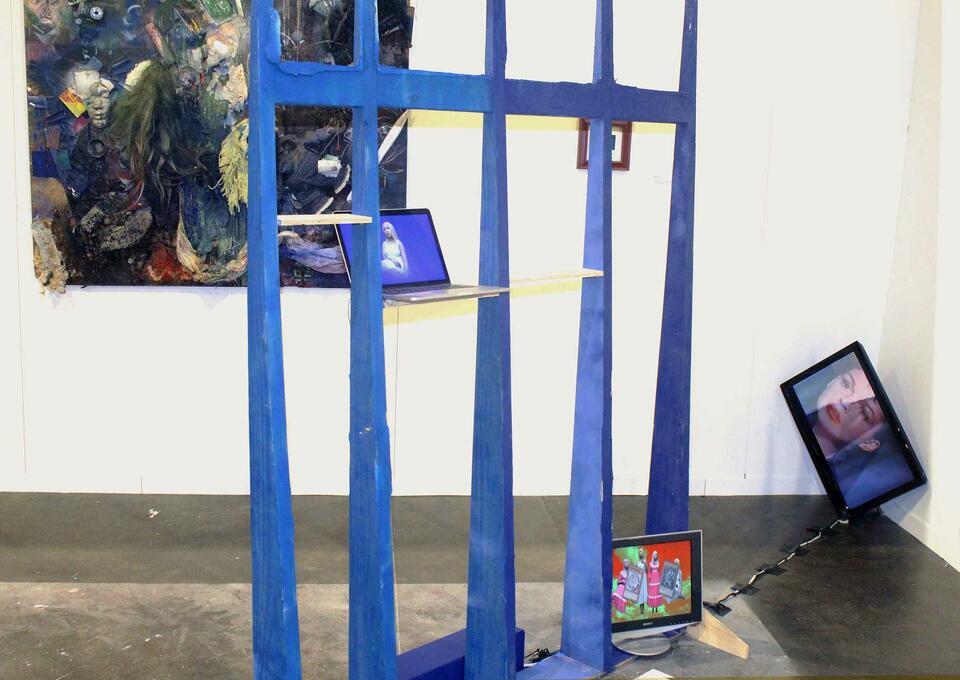Ruchika Nambiar
Memes for the Soul:
The Internet and its Phantasmic Global Citizen
Ruchika Nambiar is a miniaturist, book artist and writer who produces experimental, interactive, multimedia stories. Her work ranges from artist books and graphic memoirs to dioramas and interactive social-media narratives, seeking new ways to create harmony between content, form & interaction. Also a researcher, she writes on themes of cultural philosophy and media studies. She is the creator of The Dollhouse Project that has been featured by Architectural Digest, India Today, and more. She works on experimental art commissions, with brand collaborations like Samsung and several publication design clients. In recent years, she has also delivered talks – most recently at TEDxRISD – and has been developing a mentorship programme, The Creative Finishing School, for young artists and designers. She currently teaches at RISD under the department of Illustration. Know more about her work at www.ruchikanambiar.com
Nambiar's thesis, Memes for the Soul, studies the internet meme as a symptom of the various new conceptual logics that have emerged in the age of information and networks – specifically those that govern our understanding of the “world”, “self”, and “knowledge”. Dismantling its existing ontological status, it reframes the internet meme through its communicative and performative social functions. It shows how the internet meme – through its capacity for experiential resonance, self-referential humor and absurdity – performs a curious dual function: it at once exposes the scale of the world, as well as soothes the anxiety that comes with that scale, rendering it an immensely addictive form of expression for our time.
Image
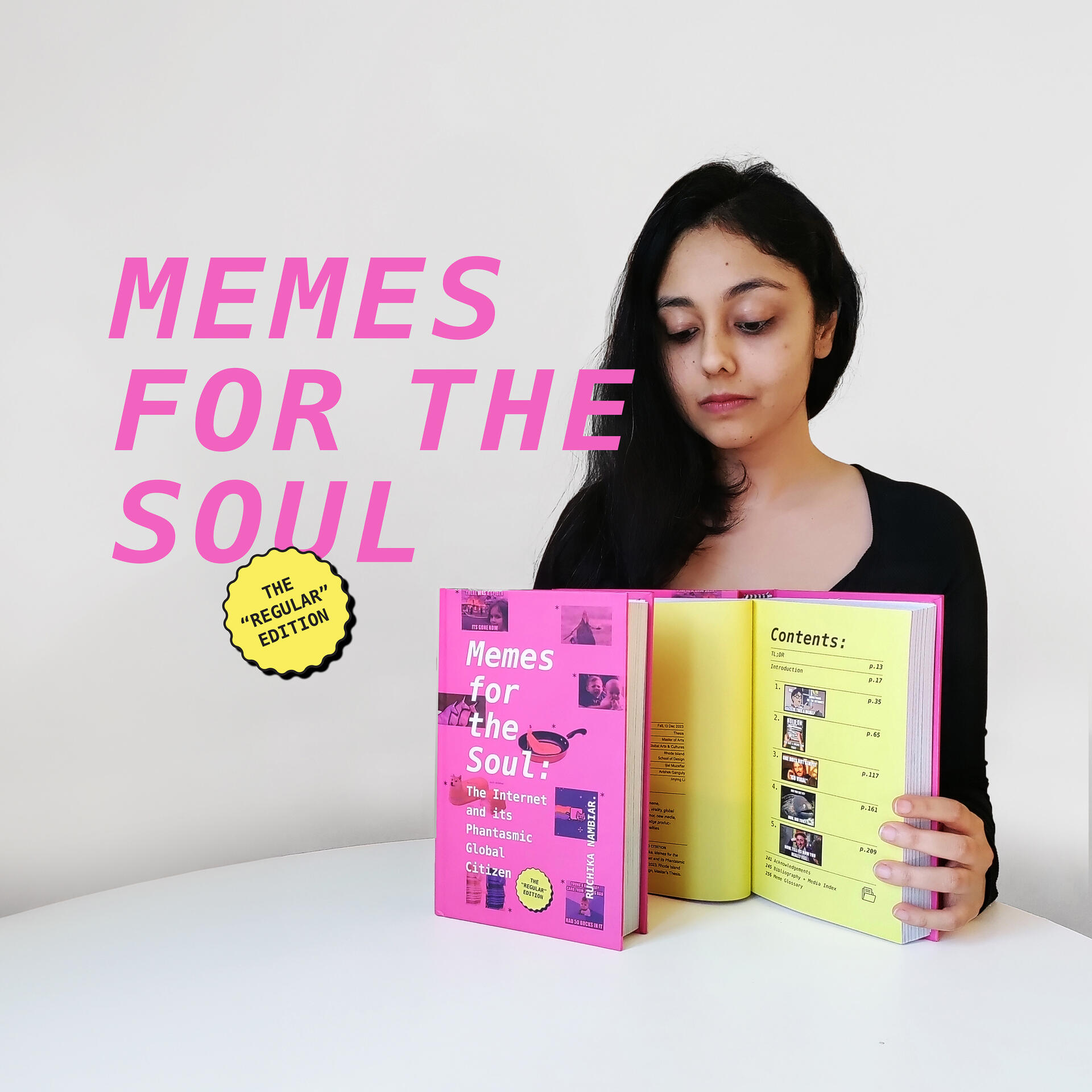
Memes for the Soul: The Internet and its Phantasmic Global Citizen by Ruchika Nambiar (2024)
The book is produced in two editions, the "Regular" edition which is designed to be a mass-market publication, and the "Funhouse" edition which is a multimedia artist book containing interactive pages, pop-ups and more. Nambiar's practice lies at the intersection of multiple disciplines across graphic design, storytelling, miniature art, writing and research. She combines strategies and mediums across these disciplines to create experimental, form-fluid stories that can speak to multiple audiences. Through her work, Nambiar seeks to create harmony between content, form and interaction, producing more lasting and immersive forms of persuasion and comprehension for her audience.
Image
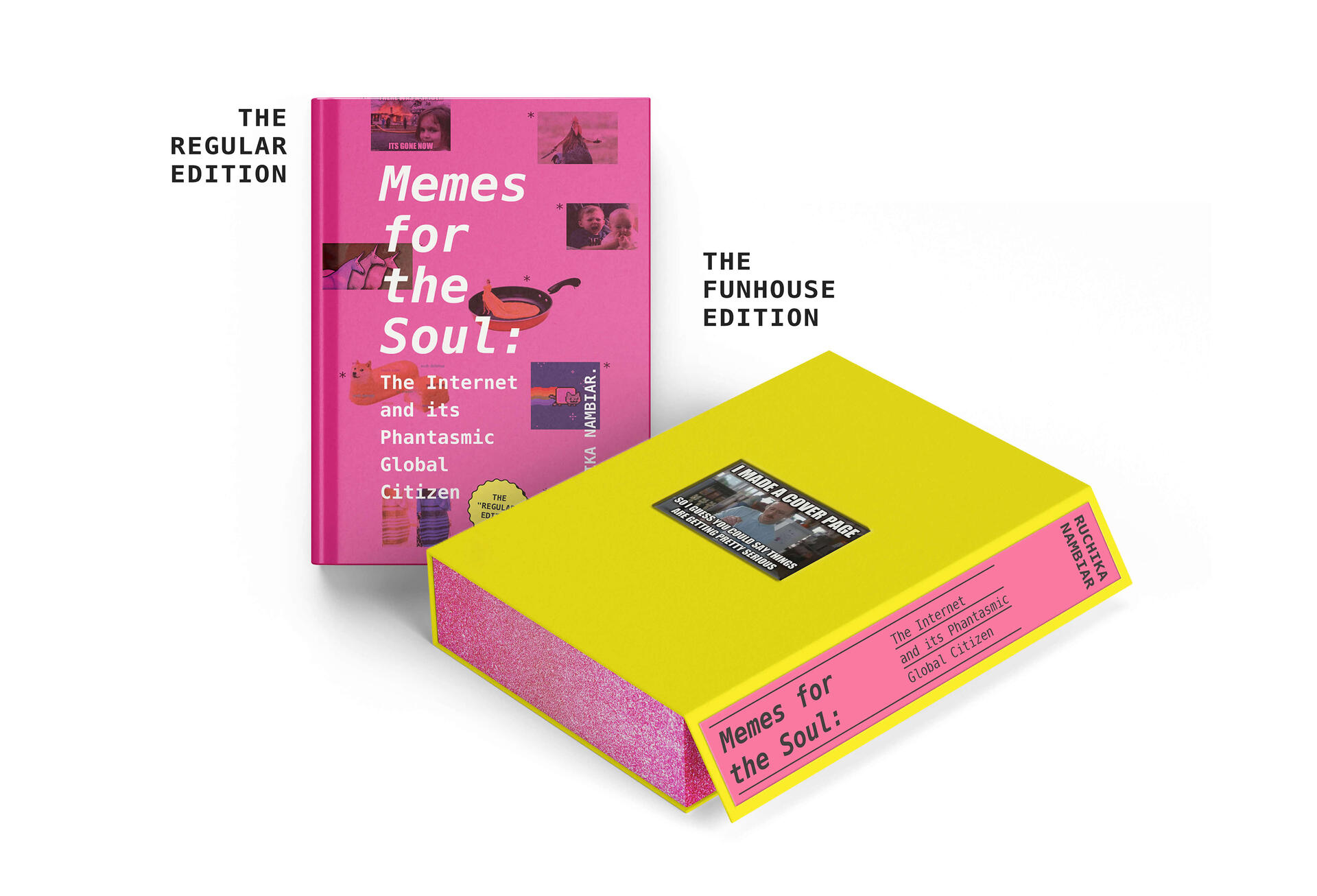
The "Regular" Edition, Hardcover book, 264 pages
The "Funhouse Edition, Multimedia artist book, clamshell box, 9x6x3 inches
Across five chapters, the book studies the internet meme as a phenomenon that exposes the fundamentally problematic ways in which we visualize the "world" and our relationship to it. Its first chapter reveals the shaky foundations upon which the meme was first conceptualized, arguing that it never existed as an object to begin with and must be reframed as a purely social interaction. Problematizing our intensely differentiated conceptualization of human "experience", Chapter 2 argues that the meme's unmatched compression capacity makes it an addictive language through which to talk about our experiences. Chapter 3 then discusses how the meme helps us cope with our inability to make sense of today's large global abstractions, while Chapter 4 shows how the meme's unique self-referential humor helps find community despite the globe. The fifth chapter ends with exposing the meme's unique ability to provide intimate resonance and utter detachment at the same time.
Image
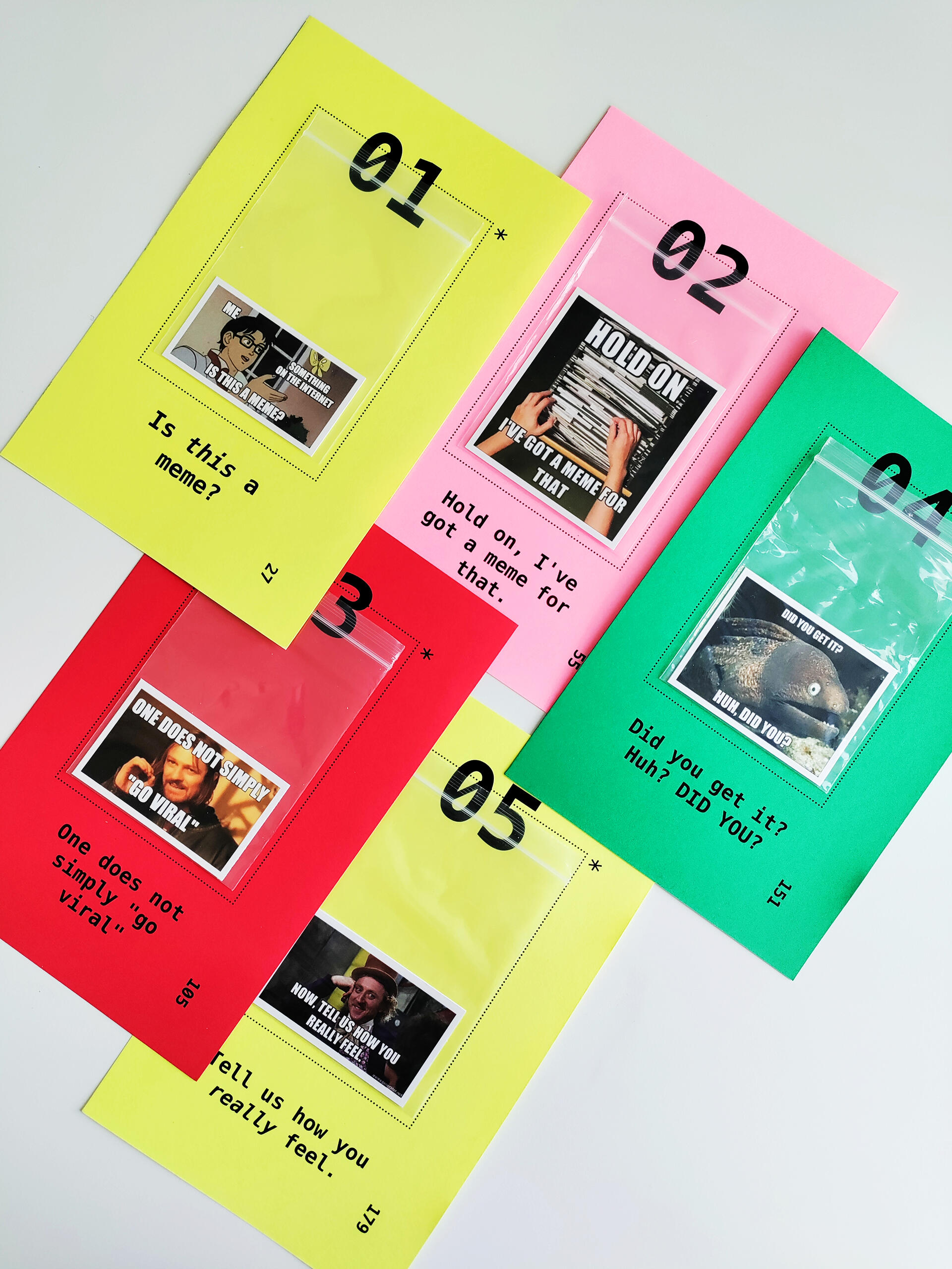
Chapter titles from the "Funhouse" edition of the book
Written in a hybrid register that blends academese and vernacular speak, Nambiar interweaves traditional scholarship with humor, personal anecdotes, pop culture references and visual material, allowing her reader a multimodal consumption of its themes. In true interdisciplinary fashion, her research draws from scholars across multiple fields such as media theory, philosophy, cultural critique, linguistics and more.
Image
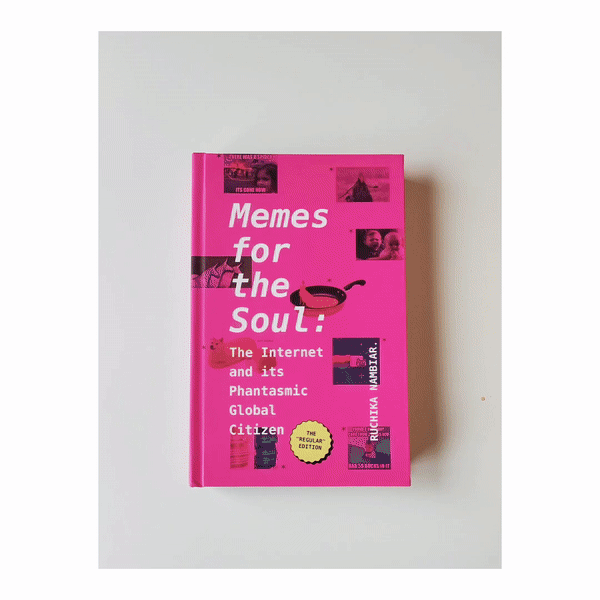
Flip-through of the "Regular" edition
Since the research deals with digital/new media, both editions of the book seek out ways to simulate various digital experiences and interactions for their reader. While the "Funhouse" edition does so in more elaborate, analog ways, the "Regular" edition too immerses its reader in play-by-play screenshots of YouTube videos, Instagram stories, TikTok videos, Reddit posts and more.
Image
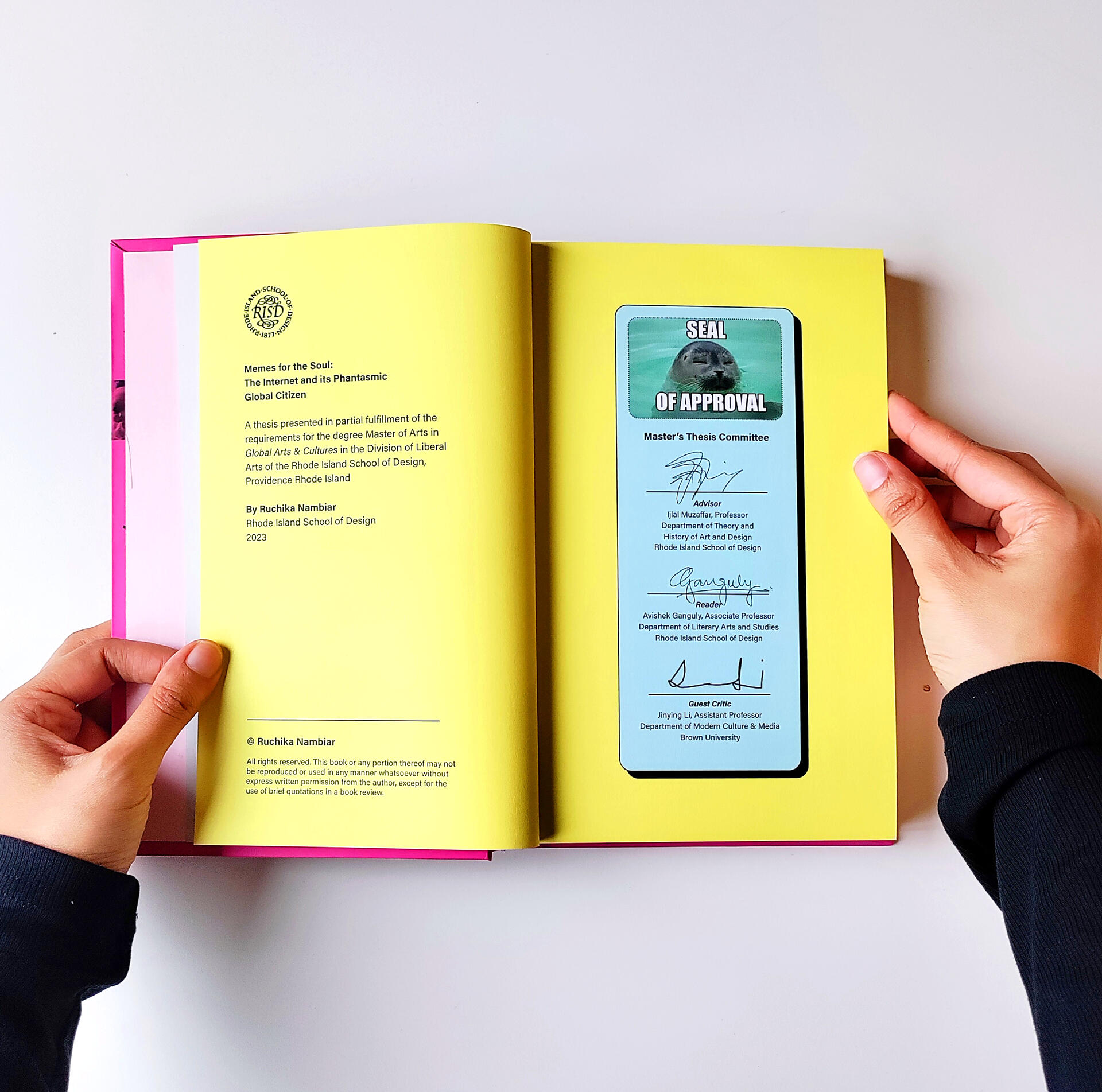
Pages from the "Regular" edition
Nambiar presented her thesis at the GAC Thesis Symposium in December 2023 where she discussed the various themes of her research at length. Watch the entire talk here.
Image

Excerpt from Ruchika Nambiar's thesis presentation video, recorded on 8 December 2023 at the GAC Thesis Symposium held at the RISD Museum.
Nambiar was recently awarded the SPUR Fund by RISD Research in order to carry this project forward. With this grant, she will soon be producing a short film documenting both editions, with a view towards publishing the "Regular" edition for mass-market, and producing a limited edition of the "Funhouse" version to be acquired by libraries. This year she will also be translating the book into an interactive pop-up exhibition. To learn more about this project and how it develops, visit the project on her website.
Image
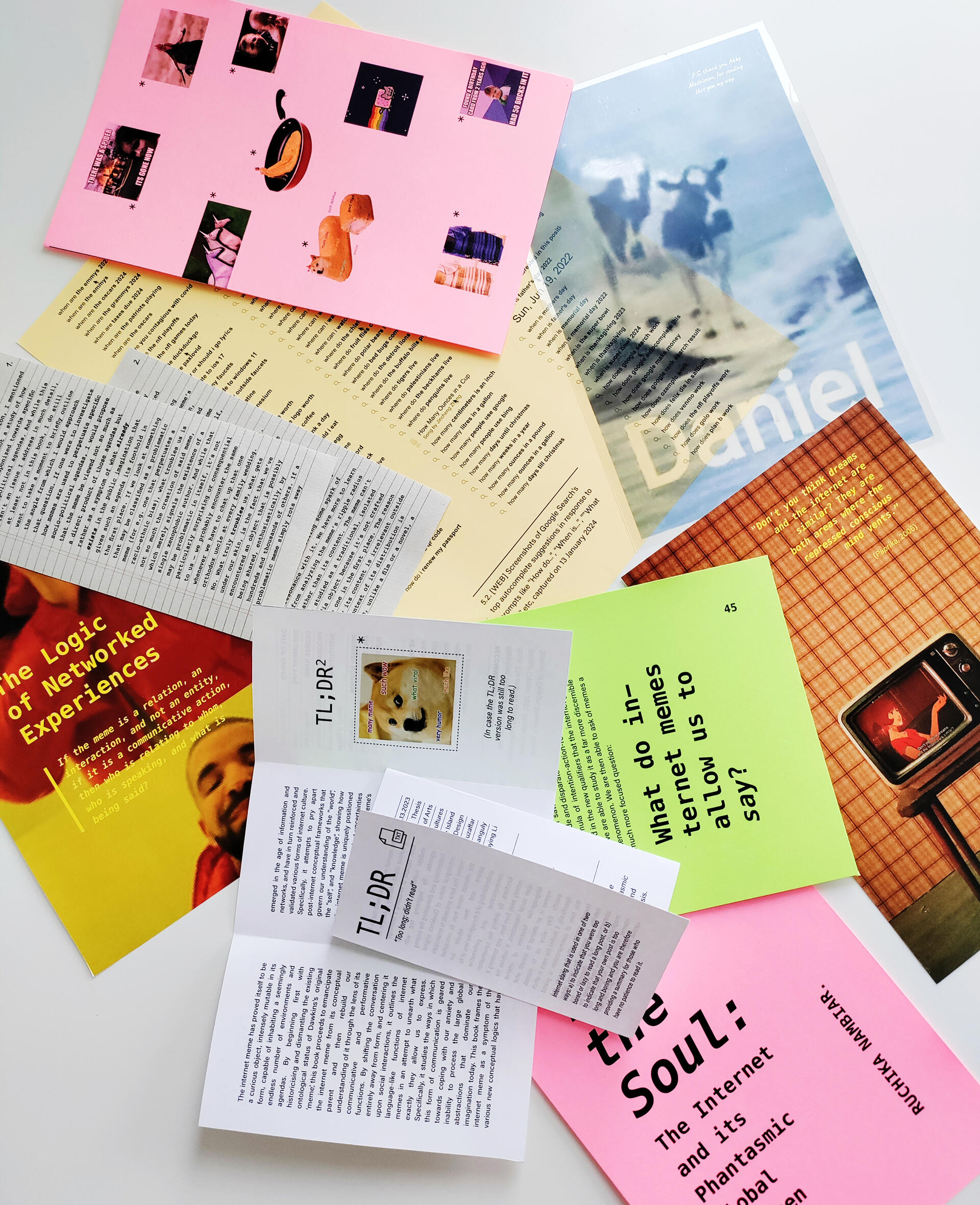
Pages from the "Funhouse" edition
EXHIBITION IMAGES
